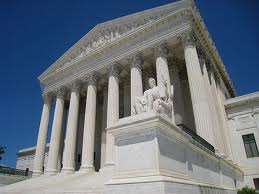
Montana parents appealed to the U.S. Supreme Court last week, asking the court to overturn a ruling that found tax-credit scholarships unconstitutional in the state.
The Montana Supreme Court had ruled 5-2 in December that the state’s tax credit scholarship program violated the state’s constitutional bans aid to sectarian schools. The ruling allowed the state to create a new tax credit scholarship program for students to attend only non-religious private schools.
“It is a bedrock constitutional principle that the government cannot discriminate against religion,” said Institute for Justice attorney Erica Smith in a press release. “Yet for the past 24 years, some states have blocked religious schools and the families who choose them from participating in student-aid programs. It is time for the U.S. Supreme Court to step in and settle this issue once and for all.”
At issue is Montana’s Blaine Amendment, a relic of anti-Catholic and anti-immigrant bias that swept America in the late 19th century. The amendment is still on the books and bans direct and indirect aid to religious schools.
Florida has a similar ban on aid to religious institutions, though these arguments failed to sway the Florida Supreme Court in Bush v. Holmes (2006) and McCall v. Scott (2017).
Scholarship parents in Montana are asking the U.S. Supreme Court to determine if banning participation in educational programs because of religious preferences ultimately discriminates against religious parents in violation of the “free exercise” clause of the First Amendment of the U.S. Constitution.
Past U.S. Supreme Court cases also come into play, such as Zelman v. Simmons-Harris, which ruled vouchers did not violate the Establishment Clause because aid was to the student and not the religious institution.
The Court also has rejected the notion that tax credits are equivalent to tax expenditures by the government in Arizona Christian School Tuition Organization v. Winn (2011).
More recently, the Supreme Court ruled in Trinity Lutheran v. Comer (2017) that state governments could not deny grants to religious organizations for playground resurfacing while providing grants to similar, but non-religious organizations. Denial of the grant, the court ruled, violated the “free exercise” clause of the First Amendment.
In light of that ruling, the U.S. Supreme Court ordered the Colorado Supreme Court to revisit Taxpayers for Public Education v. Douglas County School District (2015), which found the district-run voucher program violated the state’s Blaine Amendment ban on direct aid to religious schools. However, the voucher program was dismantled and the issue rendered moot after the American Federation of Teachers funneled $600,000 into local school board election and took over conservative Douglas County.
Blaine Amendments have successfully struck down vouchers in Arizona and Montana but failed in Florida, Nevada and Oklahoma.
If the appeal from the Montana parents is accepted, a ruling by the U.S. Supreme Court likely would clarify how states may read their respective Blaine Amendments.


